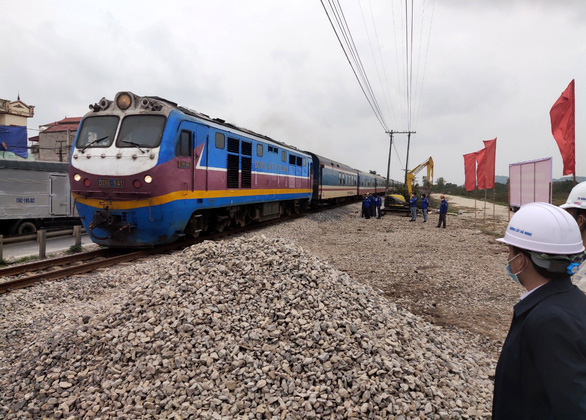Vietnam’s Deputy Prime Minister Le Van Thanh has rejected the proposal by the state-owned Vietnam Railways Corporation (VRC) to import 37 second-hand Japanese train cars as some of them had been in use for up to 42 years, beyond the maximum lifespan prescribed by Vietnamese laws, among other issues.
The disapproval was made based on the viewpoint of the Ministry of Transport, the Government Office said in a recent notice, in which the deputy PM also stated that such importation would have to be in accordance with Government Decree 65 that guides the execution of the Law on Railways.
In a report earlier submitted to the government about the proposal, the ministry affirmed that the 37 old carriages should not be allowed to be imported as they were manufactured more than 10 years ago and had been used for around four decades, as detailed in the decree.
All these rail cars had been utilized for 39 to 42 years by the East Japan Railway Company (JR East) before they were replaced with those manufactured with advanced technologies, the ministry stated.
The JR East had said it would be ready to provide the old carriages for the VRC for free, according to the latter’s proposal.
The ministry commented that the VRC had yet to evaluate technical features, investment efficiency, improvement cost, and operation and maintenance in detail, among other factors.
The VRC had not set out solutions in case such cars were found not meeting Vietnam’s requirements on safety and environmental protection, the ministry added.
The ministry therefore rejected the VRC’s proposal despite some benefits from the use of these old cars, as mentioned by the corporation in its plan.
The VRC had said it would spend around VND140 billion (US$6 million) importing the train cars, including VND40 billion ($1.74 million) on transport, VND80 billion ($3.48 million) on refurbishment, and the rest on other expenses.
The old train cars could be used for 15 years after being renovated, Vu Anh Minh, chairman of the VRC, then estimated.
Meanwhile, 37 new carriages of the same type would cost over VND1.1 trillion ($47.9 million), Minh said.
Commenting on this matter, the Ministry of Natural Resources and Environment said it did not support the proposed import, citing Government Decree 65.
The JR East discharged such old carriages for the sake of environmental protection, so they could cause environmental problems to Vietnam if being used in the Southeast Asian country, the ministry explained.
The national railway sector currently uses 1,030 passenger cars, of which 510 are under 20 years old, 231 from 20 to 30 years, 126 from 30 to 40 years, and 163 over 40 years, according to the VRC.
Under Decree 65, passenger carriages are required to run for no more than 40 years, so the VRC will have above 200 expired cars from January 1, and the number will increase every year, the corporation warned.
The VRC needs around VND7 trillion ($304.8 million) to replace the expired carriages and locomotives from now until the end of 2025, according to its own projection.
Like us on Facebook or follow us on Twitter to get the latest news about Vietnam!
















































